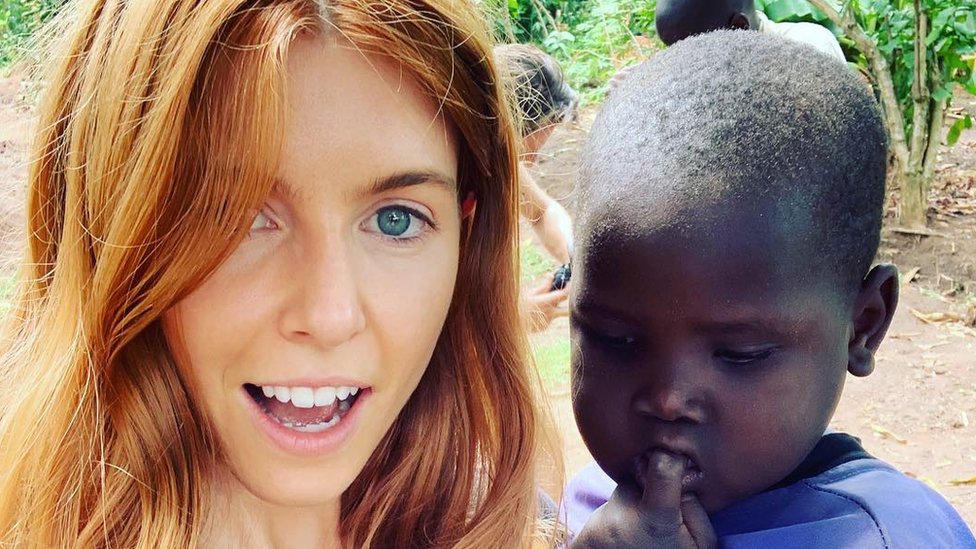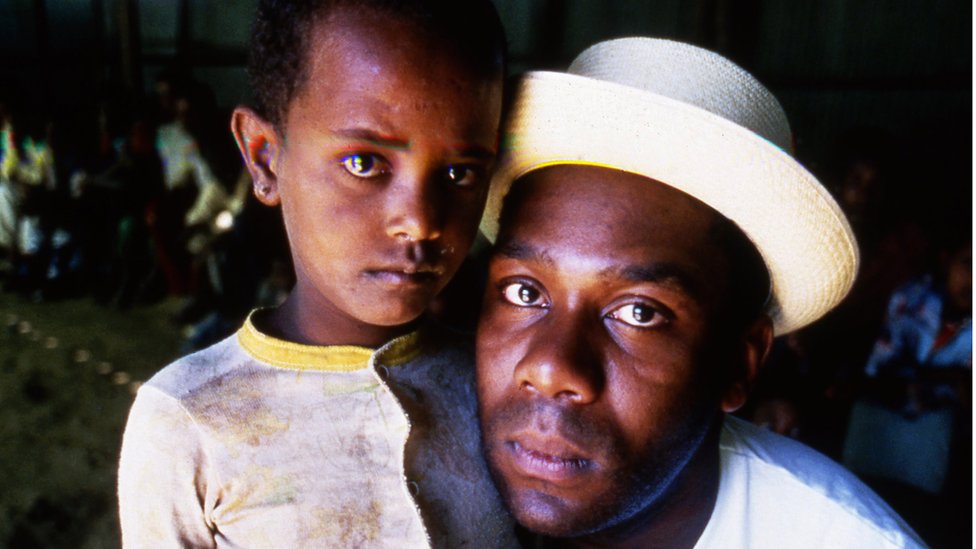Comic Relief will stop sending celebrities to Africa
-
- Published

The charity will also stop using images of starving people or critically ill children to portray the continent, it has announced.
Instead, its fundraising appeals will be made by local film-makers with a "more authentic perspective".
Sir Lenny Henry, who co-founded Comic Relief in 1985, welcomed the move.
"A lot has changed over Comic Relief's 35 years, and so the way we raise money and talk about the issues we are here to tackle, and the people we are here to support, must change as well," he said.
"African people don't want us to tell their stories for them. What they need is more agency, a platform and partnership."
As part of the new approach, Comic Relief will preview three videos by film-makers from across the African continent on Wednesday.
The films will explore issues including mental health, climate change and forced marriages.
The move comes after a backlash against the charity's tactic of sending British stars to poor African villages and filming their reactions.

Last year, the Labour MP David Lammy criticised an appeal in which documentary maker Stacey Dooley travelled to Uganda to visit a neonatal clinic that Comic Relief had supported.
He said pictures of the Strictly Come Dancing winner holding a young Ugandan boy were perpetuating "tired and unhelpful stereotypes".
"The world does not need any more white saviours," he added, saying the picture evoked "a colonial image of a white, beautiful heroine holding a black child, with no agency, no parents in sight".
In 2017, a video Ed Sheeran filmed in Liberia for Comic Relief was also handed a "Rusty Radiator" award, given to the "most offensive and stereotypical fundraising video of the year".
Speaking to MPs last year, Comic Relief co-founder Richard Curtis said the charity was moving away from celebrity-led fundraising films.
He said it would be "very careful to give voices to people" who live in Africa.
On Wednesday, Comic Relief said it was finalising new "story-telling guidelines", which would include a stronger focus on "grassroots" workers in appeal films.
The charity also said it will work with media organisations across Africa to raise "awareness of wider narratives across the continent" and promised to make "every aspect" of its production "more diverse and inclusive".
"I'm proud that Comic Relief is making these changes and I am looking forward to seeing the films next year," said Sir Lenny.
"Investing in local talent across Africa to tell stories from their communities is great and a much-needed step forward, but as always there is more that can be done. The energy and passion for change and new perspectives is there in bucket loads."

"Stop" - Google News
October 28, 2020 at 03:11PM
https://ift.tt/2Gbk5CM
Comic Relief will stop sending celebrities to Africa - BBC News
"Stop" - Google News
https://ift.tt/2KQiYae
https://ift.tt/2WhNuz0
Bagikan Berita Ini














0 Response to "Comic Relief will stop sending celebrities to Africa - BBC News"
Post a Comment